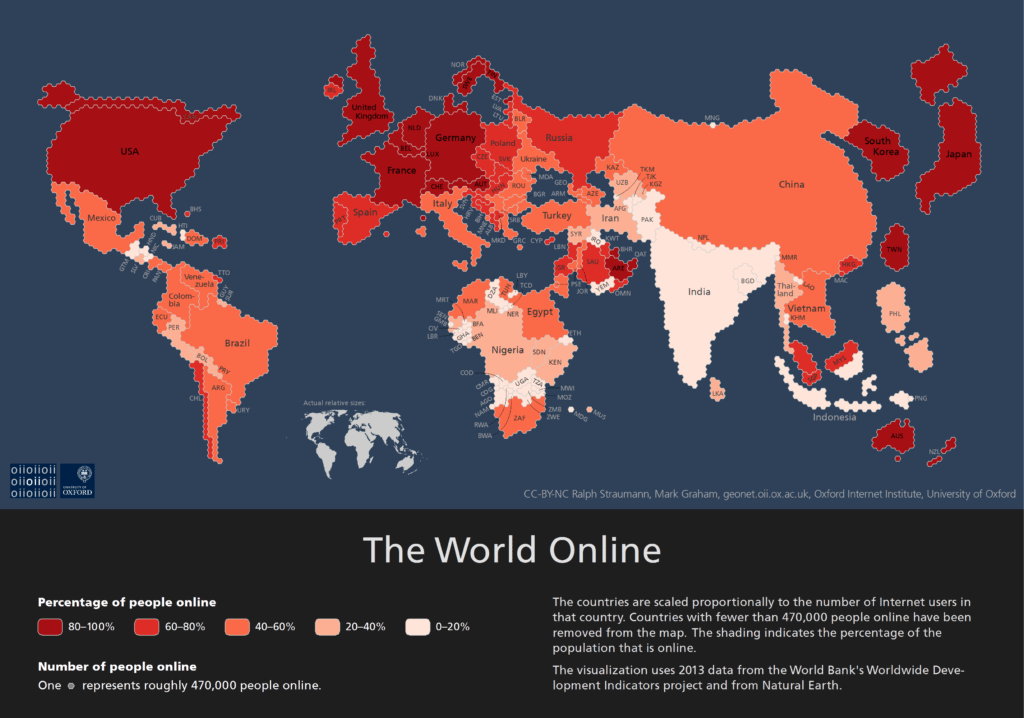Latest News
Do national governments carry the onus to provide universal broadband connectivity to its people? Or should we allow capitalism to take its course, and have industry figure out the most cost-efficient ways to connect the unconnected? At a technology seminar hosted by STS Global on Aug. 15, panelists sparred over whether it is the government’s fiduciary — and perhaps moral — duty to ensure all of its citizens have access to the internet.
Steve Yablonksi, Chief Technical Officer (CTO) at STS Global, put forth an argument that he admitted is somewhat “socialist.” According to Yablonski, a capitalist society will inherently develop technologies to only reach the people who can pay for service. From there, the service will “creep from the top down” and perhaps eventually cover the entire population — or it might not, and leave pockets of unserved or underserved communities. If a government really wants to offer the same service to everyone, he said, it will have to be subsidized.
Moreover, rather than “throwing out billion dollar funds” to get entrepreneurs to come up with the most cost-effective schemes, Yablonski suggested countries instead consider lofting their own High-Throughput Satellites (HTS) to cover the land mass. “I don’t think it’s cost-prohibitive for a country to put up an HTS and just illuminate everybody … without thinking about who they are, where they are or what they’re doing,” he said. “That would be the fastest, cheapest way to provide everybody access.”
Once that preliminary satellite bandwidth is in place, then the governments can “let the entrepreneurs of the world take it away, where [connectivity] could be served more cost effectively by other technologies,” Yablonski said.
Moderator Louis Zacharilla, director of development at the Society of Satellite Professionals International (SSPI), drew an analogy between Yablonski’s theory and the construction of the Brooklyn Bridge, placing both “in the context of infrastructure.”
Nearly 140 years ago when the Brooklyn Bridge was first proposed, “people fought it like hell,” Zacharilla said. “But how much revenue and income has been generated by that one infrastructure that covered all people?”
“Nobody asks anymore how much the Brooklyn Bridge costs,” he noted, because its return has far outweighed its initial investment.
However, earlier in the discussion, analyst Alan Rossi suggested that in some situations rushing toward broadband may not be the most ideal solution. He cited a 2009 World Bank study that found a 10 percent increase in access of basic services would increase a country’s economic value by 1.1 percent. “If instead of increasing the penetration of basic access you did it with broadband, which is not only more capital intensive but also more difficult to obtain, the contribution to the economy was only slightly larger — 1.25 percent rather than 1.1 percent,” he said.
“It’s important to understand what’s driving the demand and then look at specific environments to see whether we should go broadband or whether basic access is enough,” he continued.
According to Rossi, more than a third of total internet traffic will by pass core networks by 2021, motivated in part by the reduction in cost of data storage. Combining inexpensive local storage with basic access can deliver “equivalent services that you would normally associate with broadband,” he said. “Also, it’s a more reliable service because you’re not so dependent on the core.”
Students he observed participating in the One Laptop Per Child (OLPC) initiative in South America provide a good example, Rossi said, as they were unable to demonstrate some learning applications due to their limited broadband access. “This could have been solved very easily if [their computers] had stored a dictionary, a thesaurus, [and] an encyclopedia,” Rossi said. “In Peru, the problem wasn’t with the technology to establish this link, it was the lack of operation and maintenance. In low- and medium-sized income countries, usually the operation and maintenance is much tougher to get than the initial investment.”
Overall, though, the panelists agreed that connectivity is a critical element of any nation’s economy. Rossi also recommended prioritizing a return on investment to end users “that is commensurate or hopefully much greater than the cost associated with providing the service.”
Get the latest Via Satellite news!
Subscribe Now